From Wall Street to the open road
Meet the financial expert turned extreme traveller. Featured in a BBC documentary, alumnus Matthew Lee shares his journey from whistleblowing bank corruption in New York in the lead up to the 2008 financial crash, to motorbiking solo past burning tyres in Ecuador during civil unrest.

Did you have any particular aspirations or influences as a child?
My parents did not let my siblings and me read comics but we were allowed to read “Look and Learn”. At the age of 12, I read a “Look and Learn” article about the promised land of the USA and their need for doctors. So, from that age, I was going to become a doctor and emigrate to the USA. Schooled in rural central Scotland, I applied for conditional acceptance to the University of Edinburgh Medical School. A few weeks after posting that application I was witness to a rural once-in-a-hundred-years very bloody stabbing murder, which had the ongoing subconscious effect of me uncontrollably passing out as soon as I saw a decent amount of blood. I never became a doctor and stumbled into finance.
Why did you choose Edinburgh and how did your time at Edinburgh change you?
The University has always been among the world’s leading medical schools, which is why I initially applied to Edinburgh. I had no career Plan B but stuck with the University. Not knowing what I wanted to do, I changed degree three times and, apart from being Treasurer and President of the University Ski Club, did not fully benefit from the many opportunities the University offered. It did implant into me a lifelong passion to keep learning in the broadest sense.
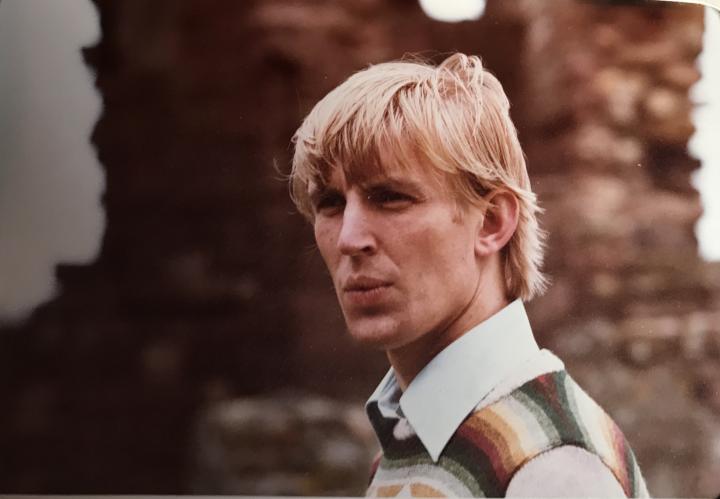
What drew you to a career in finance?
Beyond medicine, I still very much wanted to emigrate to the USA but obtaining a work visa is not easy. Finance was a possible passport, so against any passion for the subject I qualified professionally in accountancy in the London office of a leading global firm. I was subsequently transferred to its New York office on a special intercompany skilled worker visa. From there I went on to obtain a green card and dual nationality. I found accountancy fundamentally dull but specialised in the Financial Services Industry as it was global, interesting and often complex. I was very lucky to be an expert in a financial product whose skillset Lehman Brothers had a need for at the time they went public in 1994 and I was hired in.
You appeared in a BBC Storyville documentary called Inside Lehman Brothers: The Whistleblowers discussing your time at the company in the lead up to the financial crash of 2008. On reflection, how did you feel being at the heart of such a seismic global event?
Lehman Brothers (LB) is credited with being the catalyst that created the 2008 crash caused by many global financial institutions, not just LB. Like many organisations, LB had as much office politics as Italian medieval courts and every day was an office battle. The 2008 financial crisis started in late 2006 from which time I observed the global debacle unfold. My 16 May 2008 letter was an internal political manoeuvre that backfired. Perversely, it was an exciting time, especially observing how global governments reacted post LB’s unnecessary collapse. On reflection, I’m not pleased that to date nothing much changed in global finance.
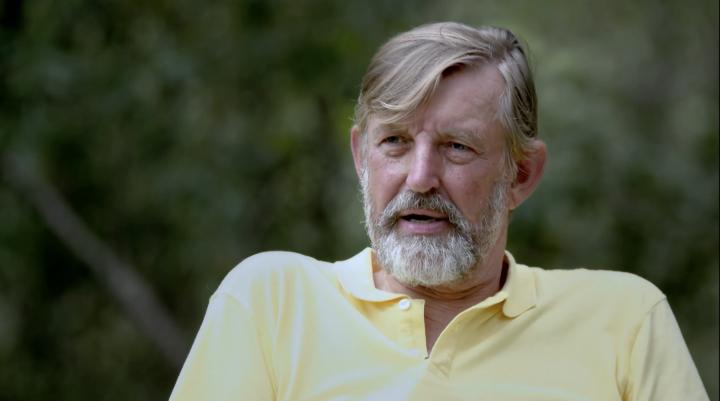
You took a stand and alerted your managers about discrepancies you’d discovered in the company’s financial reporting at the time. What does honesty, openness and integrity mean to you both then and now?
The BBC broadcast Inside Lehman Brothers was part of a series of documentaries on corruption. Certain management were corrupt; they knew it and I knew it. Wall Street has always had pockets of corruption and always will, it is part of its culture. These discrepancies were well known by many for a long time. Hoping to get some meaningful action, my letters described in writing discrepancies that had been previously only verbally communicated. Honesty, openness and integrity are the backbone of survival in business but politics plays a large part at higher levels. We set the height of our own bars when it comes to honesty, openness and integrity. There came a time when my inflexible bar was breached.
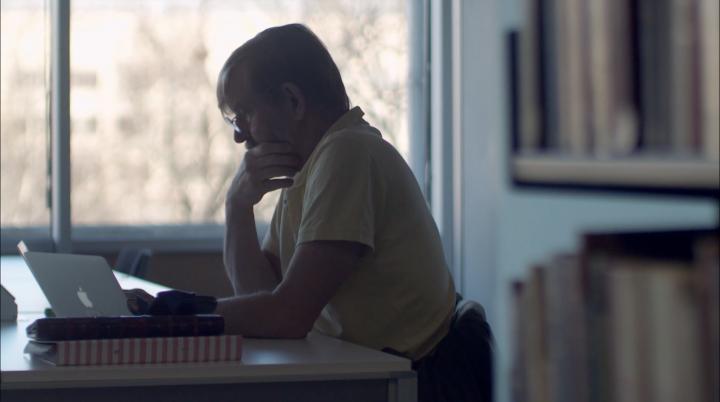
You were filmed in the University Main Library in George Square, which appears in the documentary. How did it feel to return to the University?
The library was strangely familiar. I loved being back. For a month before filming I had been an alumnus planning my motorcycle circumnavigation of Africa and had gravitated back to the desks where I had studied decades earlier, on the fourth floor on the George Square side. You still have to arrive early in the day to secure a window seat! The big differences were the turnstiles to enter the library, computer and copier stations and the bare wooden desks now had plugs and sockets; many of the books looked familiarly old! The student body appeared to be more cosmopolitan than in the 1970s but just as studious. There were obvious building and technical campus changes, but on the whole the main campus was eerily the same.
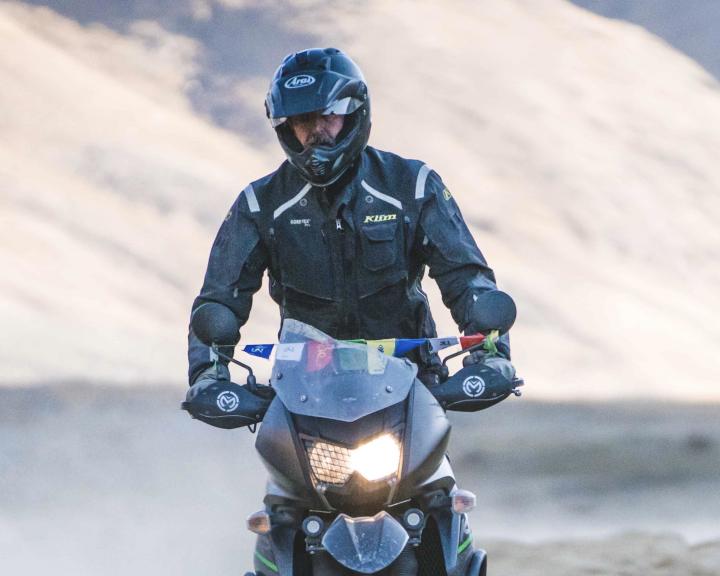
Since leaving the financial world, you have travelled the world on your motorbike. What motivated you to do this?
By 2009, it was quite obvious I had been blacklisted from Wall Street and other positions suited to my skillset and experience. Essentially, I had been forced into early retirement and therefore given an opportunity to do something completely different.
I have always loved travelling and had been hiking extensively in Patagonia. On the Chilean Patagonia cult ferry ‘Navimag’ I serendipitously shared a cabin with two global motorcyclists. I whined to them about how slow buses were and how it was difficult for me to get to places and they suggested I bought a motorcycle. I had owned 13 motorcycles by the age of 25 but had since never been near them. So that is what I did, I bought an adventure motorcycle, a one-way ticket around the world, even along goat tracks in exotic places.
What have been the standout memories of your trip and why?
I’m asked that question all the time and do not answer it because every country has something to offer and the poorer countries really need tourist dollars going directly to local businesses and travel agents. I have been to more than 90 countries now and am on my fifth lap of the equator in equivalent distance travelled by motorcycle, so with such varied experience, it is impossible to highlight a single best country.
Travel was all good and, yes, often better in some countries. I write a daily motorcycle diary and for each country I spend sufficient time in, I document my top three experiences on the motorcycle and my top three experiences overall in that country. Only once has each top experience been the same and that was in Ladakh, India. Primarily for tranquillity, wildlife and Shackleton history reasons my favourite place in the world is the British Overseas Territory of South Georgia, but I arrived there by boat from Argentina; I was not allowed to take my motorcycle!

You experienced conflict and civil rights protests in countries during your motorbike trip. Could you say more about this?
Surprisingly, Bangladesh has been the only country that would not allow me and my motorcycle entry. Bangladeshi immigration cited the reason being the Rohingya troubles in the south east part of the country. Ironically, the neighbouring Myanmar government had earlier given me a permit to travel in Rakhine State, former home to many of the now Rohingya refugees in Bangladesh; however, the Myanmar government would not let me near the Rohingya settlements in Rakhine State.
The most dangerous encounter on my round the world trip was exiting Nigeria into an, unknown to me, civil war zone in Cameroon. My motorcycle diary that day was pages long. After six hours at the border (Nigeria would not let me back in as I only had a single-entry visa), the Cameroon army escorted me through 40 kilometres of active war zone. There were many spent bullets on the road and machine gun posts facing towards the jungle. My motorcycle was searched with a fine toothcomb four times; they were looking for arms and could not understand why I did not carry a weapon. I do carry an extremely sharp knife I use for cutting raw meat and vegetables, but the army appeared disinterested. I spent the night in a 200-bed luxury hotel. I was the only guest and management let me park my motorcycle off street in a safely locked carpeted conference room.
Last year, I completed a ride from Deadhorse, Alaska, to Ushuaia, Argentina, travelling through Central and South America during a year of sub-Continental social unrest. I was locked down in Quito, Ecuador, and Sucre, Bolivia, for more than a week in each – those cities and countries as a whole were barricaded in by protesters. I was teargassed in Honduras and Chile, rode through flames of burning tyres in Ecuador and had to turn around when two sticks of dynamite, thrown from a clifftop by protesters, exploded near me in a remote part of Bolivia. These protests were all to do with inequality of income and wealth and the suppression of indigenous peoples.
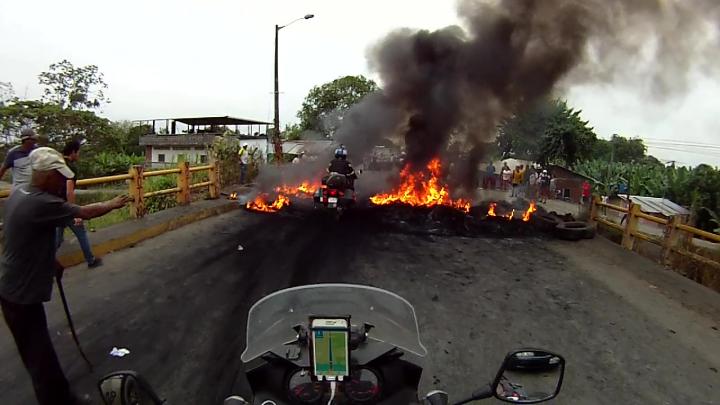
Is there anything important or significant you feel you have learned from your travels?
That is a very difficult question. Every day on the road is a learning experience in one or more subjects including politics, history, geography, religion, culture, anthropology, geology, archaeology, palaeontology, public health, art, language, meteorology, everything really; too much to take in on the road. I have written notes and have years of reading ahead of me.
My two most significant observations have been, first, how poor much of the world is and how those poor people appear generally happier in life than their counterparts in developed countries. My second observation is how little space wild animals have on our planet; humans have pushed them into tiny spaces waiting for extinction. I was indifferent towards wild animals when I started my journey, but I now seek them out.
As the pandemic spread and lockdowns came into effect around the world, your trip was forced to pause. Could you describe how your travels were affected in the weeks leading up to the lockdown?
On 1 January 1 2020, I woke up to the smell of teargas in Santiago, Chile, from where my motorcycle was soon to be shipped to Europe for an onward motorcycle journey along the Silk Road to Tibet and eventually to Vladivostok, where I would conclude my five-year solo round the world motorcycle trip. I was in the process of obtaining China and Russia visas when the news of the China Covid-19 epidemic became bigger news and I managed to stop the China visa process before it became expensive.
My one-year very expensive Russian visa was more complicated as I would be entering Russia at three different places at three different times. Russia closed their Embassy before my visa was issued and they are still closed until further notice. I had been living alone during the UK lockdown in a small studio flat in London and the dynamic global Covid situation has now hit my journey pause button for the whole of 2020.
Depending on Covid, I hope to start 2021 actually obtaining those Russian and Chinese Visas! Behind that pause button life for me is rather quiet, but now very fresh air, rural and extreme adventure travel book completion friendly. To pass the time, I have been writing a book – its working title is Sixty Days to Angola. It will be a ‘how to’ book for would-be bicycle, motorcycle and vehicle extreme adventure travellers, my journey through West Africa as illustration.
What are your hopes for the weeks, months or years ahead?
I have given up the idea of riding in 2020 and hope to resume in 2021, but if the world’s borders are still generally shut down next spring, I will give up my motorcycle travels and try and settle down somewhere. I have much documentary filmmaking, reading and writing ahead of me. I will continue to travel extensively, but not by motorcycle.
What words of wisdom would you give to those who graduated from the University this summer?
If you think your education is over, think again as it is about to begin again. If money is part of your goal, for the rest of your 20s focus, but keep learning; wait till your 30s onwards to start cashing in. Keep working hard and always remember to play hard too.
Find out more
Watch the BBC Storyville documentary in which Matthew Lee is interviewed: Inside Lehman Brothers.
Read more Edit supplements.

